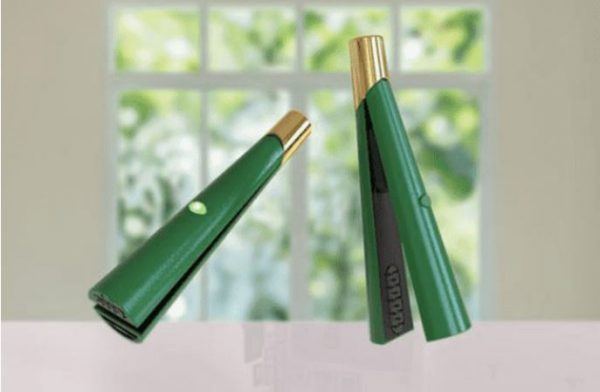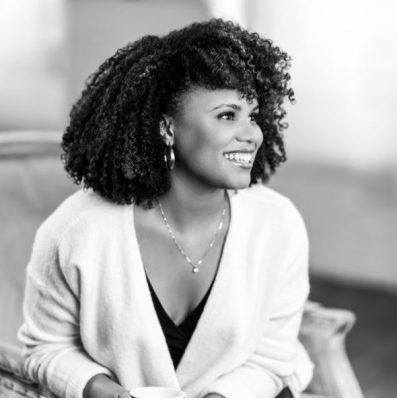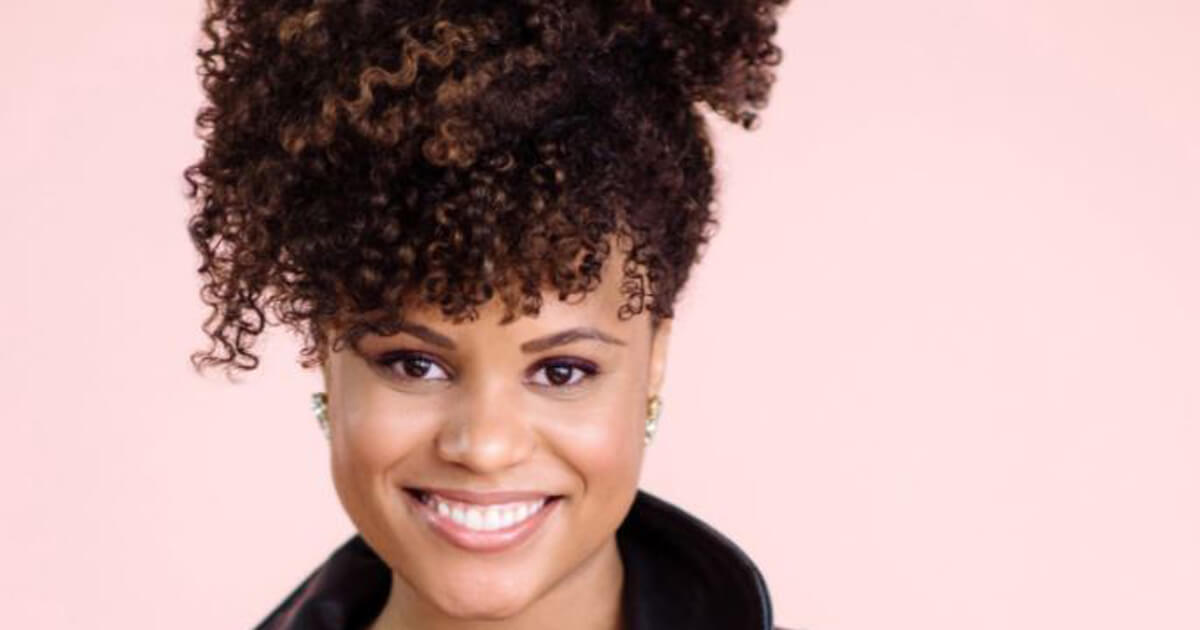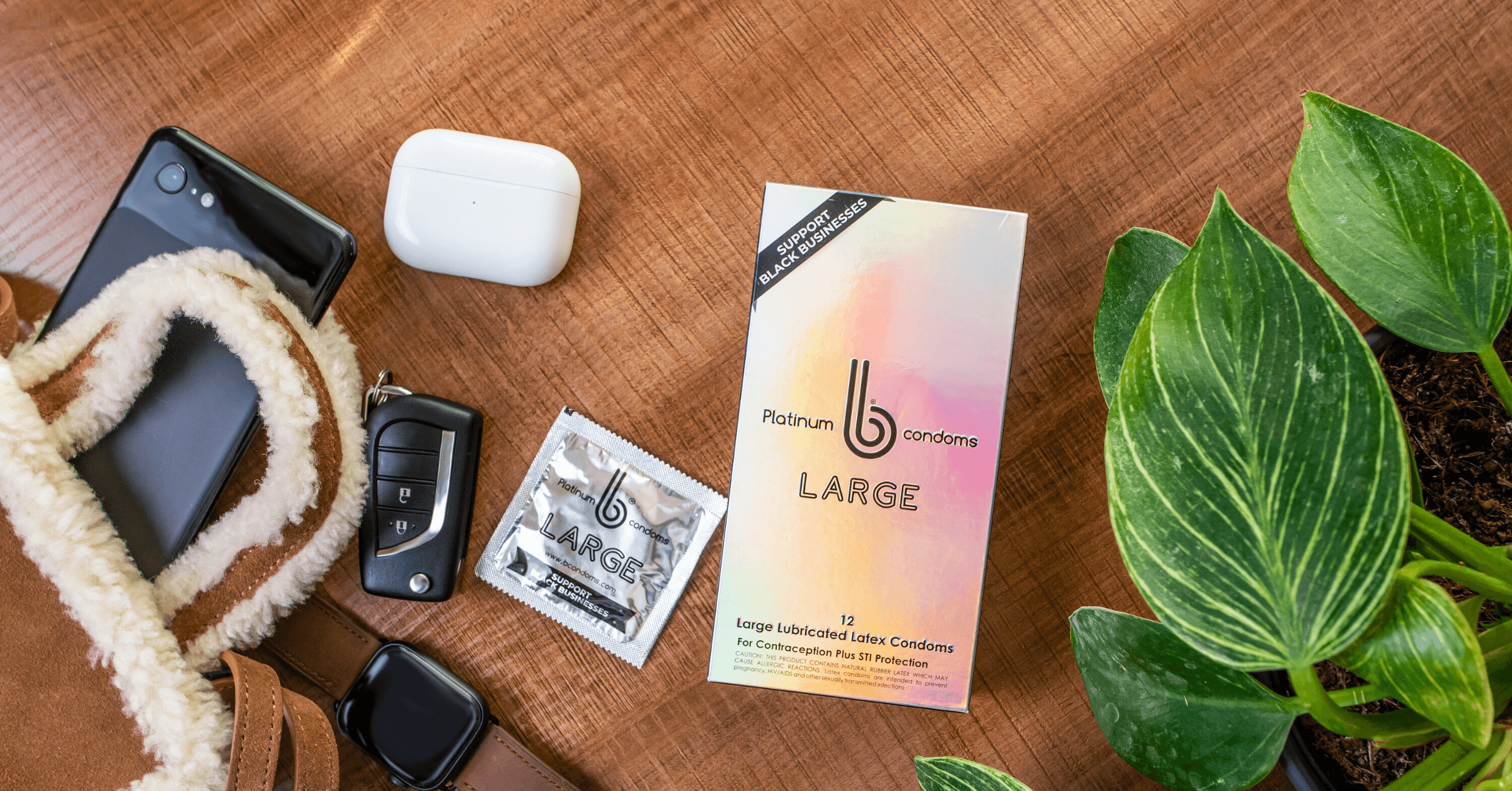Over the past decade, there has been an explosion of natural hair care brands, products, and advancements. The global natural hair care market was valued at $8.7 billion in 2019, and the industry is expected to grow by 4.7 percent annually through 2027. This is good news for the 60 percent of women in the U.S. who describe their hair texture as curlys, but the industry has lagged behind. The process of detangling, moisturizing and styling has been deemed so time-consuming that many consumers dedicate an entire wash-day to the task. Beyond time people are spending money, the beauty and personal care industry in the U.S. brought in approximately $98.05 billion in 2020.
Dawn Myers, a southeast D.C. native, is working to ease those pain points by fusing technology into everyday hair care routines and tap into this lucrative market.”A lot of problems we’re facing as Black women in beauty are because those folks who are making those decisions at major manufacturers don’t look like us,” Myers told The Plug. “They don’t understand our problems or know what it’s like to go to the gym and have to figure out what the backend of wash day looks like.”Myers, a lawyer by trade, founded THE MOST in 2018, a startup that designs and manufactures tech-enabled hardware for women with highly textured curly, coily, and kinky hair. The venture-backed company is on a mission to make it easier for women to embrace their natural hair with tools that make the styling process faster and seamless.
Myers was inspired to launch her company after struggling to style her hair, which would amount to a three-hour process at times. “I remember when I cut my hair off during my first year of law school, there weren’t any products I could just go into CVS and get,” Myers told The Plug. “So I was using aloe and olive oil off grocery store shelves. Those were my hair products, but we’ve come such a long way since then.”She continues to draw from her initial struggle to create products for Black women in particular that offer a technological update on traditional products. “At THE MOST, we are designing hardware that specifically meets the needs of women of color and Black women in particular.”
How the company’s niche tech works

THE MOST’s team of five employees and three contractors has been designing its feature technology coined The Mint over the past four years. The Mint is a USB-powered styling and detangling product equipped with an internal heating mechanism and various settings and has a patent-pending. Mint Minis can warm conditioners, gels, moisturizers, and oils with the heating mechanism. Mint Minis are to The Mint what K-cups are to a Keurig; you can fill these mini pods with your products or purchase them pre-filled from THE MOST.”If I had to describe this tool further, take a flatiron and remove those damaging hot plates that straighten hair. We have replaced those hot plates with bristles plates in addition to our technology that leverages liquid pods, Myers sd.
The Mint’s internal heating mechanism only supplies gentle warming effects and doesn’t wholly heat products to keep hair safe and preserve curls. Instead of getting straightened hr as with a traditional flatiron, naturalistas can detangle and hydrate their hr. There are a good amount of tools using steam technology‚like L’Or√©al’s Steampod Hair Straightener and Curling Iron, the HSI Professional Glider, and the Mkboo Steam Plus Hr Straightener, the Q-Redew Handheld Hr Steamer, and Dyson’s suite of curl-focused tools‚but no developed products on the market focusing on the application and warming of liquid products during the process.
Creating tools with this capability is no walk in the park ‘we’ve had to engineer around a lot of complicated variables to make this technology, Myers shared. This is really where the opportunity lies. We’re focused on the major pain points around natural hr styling – detangling and product application- rather than the ancillary processes like steaming or diffusing. Those are a part of the picture of course, but they aren’t where we’re spending the most time and effort.
Slow and steady wins the race
Myers bootstrapped THE MOST to get it off the ground, which included selling her house and liquidating her assets. Since launching her company, she’s been most focused on staying afloat. After some fled financing conversations, Myers sd her company found many partners that understand Black women consumers’ power and how much money they spend in the hr care market. In 2019, Black shoppers spent $473 million on their hr care needs alone.”A lot of people that we initially started pitching just didn’t get it.
You could see their eyes glaze over as soon as we started talking about hr, beauty, and Black women,” Myers sd. “What we found is that we have to go into the communities that are already thinking how we’re thinking.”Myers went the pitch competition route. She recently participated in P&G Ventures’ and Revitalize Venture Studio’s Pitch BLCK competition. The pitch event took place virtually on Clubhouse, and Myers snagged first place and walked away with $30,000 that will go towards a crowdfunding campaign to raise $300,000 to continue developing THE MOST.
“I gotta be honest; I didn’t think I had this one in the bag. So I was really pleasantly surprised,” Myers sd. Aside from this recent win, Myers has participated in seven accelerators to date, including Sephora Accelerate. THE MOST also received one of 16 Glossier Black-Owned Beauty Brand Grants last fall from a pool of 10,000 applicants. Since 2018, THE MOST has rsed nearly $1 million in venture capital from a portfolio of investors that Meyers declined to disclose at this time.”Early on, everybody told me that there was absolutely no way a regular person was going to be able to build hardware and get funding,” Myers sd. “They weren’t wrong. For mere mortals, that is an impossible feat, but for Black women who are used to persevering and pivoting, it becomes that much more doable.”
Charging ahead and preparing to hit the market

Aside from leading THE MOST, Myers is also the director of the Vinetta Project’s D.C. chapter. The organization helps women founders build community through events, online forums, and annual pitch competitions. While Myers is preparing to put the Mint on the market, she wants her followers to know that building this new technology from scratch has been a costly process; she’s invested all of the resources she has into bringing her vision to fruition.
THE MOST did a limited pre-order run to test market viability over a month-long period, which garnered 120 sales. The company is also running a beta testing group of 12 women with different hair types and textures who provide deep feedback at each stage of the tech’s development. Additionally, an undisclosed investment partner has opened up access to their African American network for additional focus group testing. Myers said THE MOST has a deep relationship with Sephora following its participation in the company’s accelerator program. She’s also in talks with major retailers to potentially put The Mint on store shelves.
The barrier to entry for retail is extremely high and we are focused on negotiating fair, mutually beneficial terms, Myers shared. Further, we have several local salons interested in using and carrying the Mint upon release. The Mint is expected to officially hit the market in early 2022 with a price point between $200 to $250. THE MOST is also working on manufacturing other hair care products including detangling brushes and scalp moisturizers.”Our overall focus is to serve Black women in a way that they’ve never been served. To exceed their needs and give them a luxurious experience that we typically aren’t given,” Myers said. “That end goal is what keeps me motivated.”








